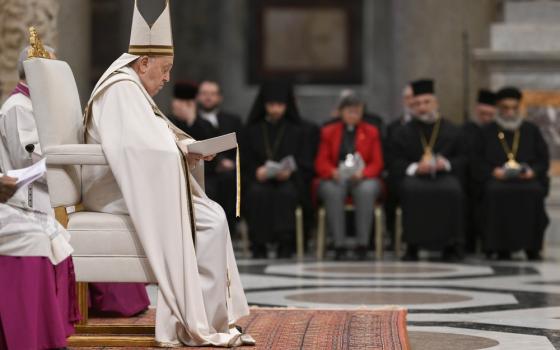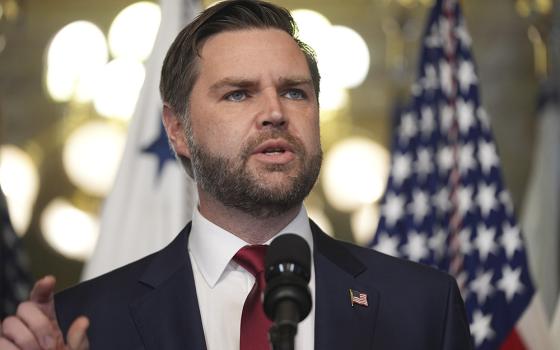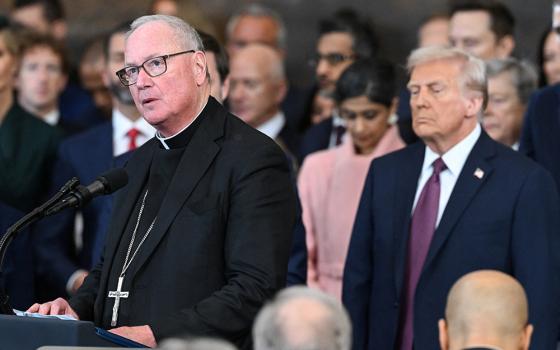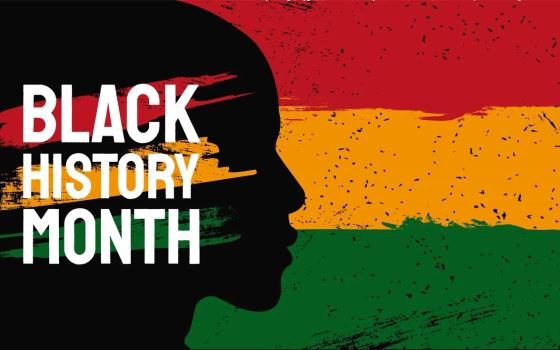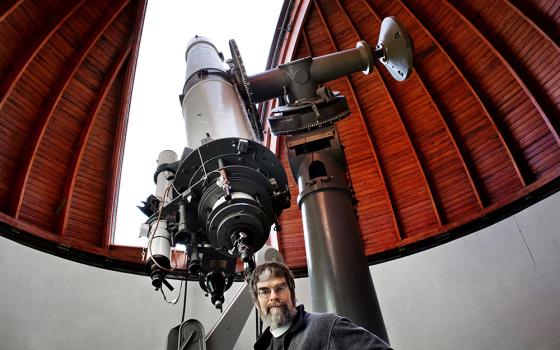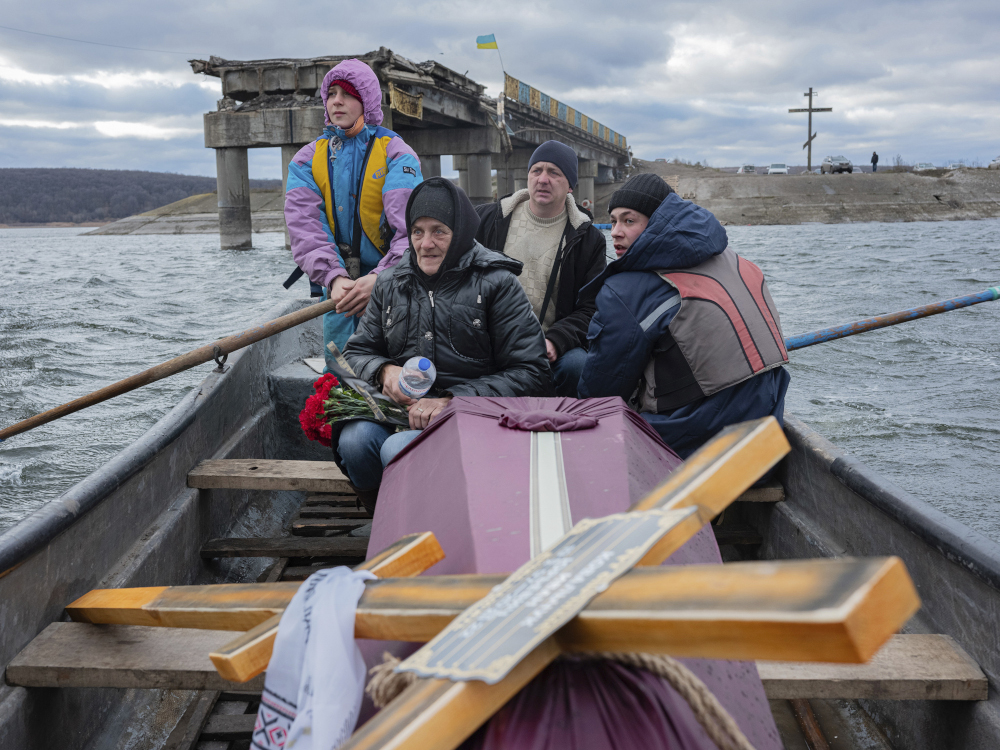
A woman sits in a boat crossing the Siverskyi-Donets River near Staryi-Saltiv, Kharkiv region, Ukraine, Jan. 4, 2023, transporting the coffin containing her dead son, a Ukrainian soldier who was killed in fighting with Russians. (AP Photo/Erik Marmor)
Vladimir Putin ordered Russian troops Jan. 5 to recognize a 36-hour truce throughout Ukraine during the Orthodox Christmas holiday weekend. The announcement came in response to an appeal by Russian Orthodox Patriarch Kirill, who called for a cease-fire lasting from noon Jan. 6 through Jan. 7.
Orthodox Christians celebrate Christmas on Jan. 7, following the Julian calendar that preceded the Gregorian calendar introduced in Europe in the 1580s, though some in the western part of Ukraine celebrate on Dec. 25.
Russia’s gesture, which comes almost 11 months into the invasion that has cost more than 6,000 civilian lives, was dismissed on Twitter by Mykhailo Podolyak, a top adviser to Ukraine’s President Volodymyr Zelenskyy, who told Russia to “keep hypocrisy to yourself.”
A spokesperson for Zelenskyy also told The Washington Post that Moscow has ignored previous truces proposed by Ukraine at this year’s Orthodox Easter in late April and Christmas in the Roman Catholic Church, stating that Russian strikes killed more than 10 civilians on Dec. 25. “It is absolutely clear that this is definitely not about caring for believers or human lives,” the spokesman said.
Putin’s instructions for the cease-fire, posted on the Kremlin’s website, frame the truce as an opportunity for believers to observe religious traditions. “As a large number of Orthodox Christians reside in the area of hostilities, we call on the Ukrainian side to declare a ceasefire to allow them to attend church services on Christmas Eve as well as on Christmas Day,” the website says.
In December, more than 1,000 U.S. faith leaders called for a Christmas cease-fire from Dec. 24-Jan. 19, the 12th day of Christmas in the Orthodox calendar. One of the signers of that statement, Bishop William J. Barber II, told Religion News Service on Jan. 5 that while he doesn’t know the mind of Putin, halting death and destruction is always the right thing to do.
Advertisement
“I hope that the troops on both sides will do what the troops did in 1914. They had a cease-fire on Christmas Eve, and on Christmas Day. The troops decided that they weren’t going to fight, even though the generals and others, according to history, demanded that they keep fighting. … They tried to show the world a different way,” said Barber.
Barber added that Putin should move beyond a temporary cease-fire and stop the war that he started in the first place. “War and destruction and death, it … hurts the poorest in the world the most. All the resources put into war could be used in so many ways to bring life.”
The peace groups who issued the December statement calling for a Christmas cease-fire, including Fellowship of Reconciliation, CodePink and the National Council of Elders and the Peace in Ukraine Coalition, issued a statement Thursday calling Ukraine to join the truce. The statement asks people of faith and conscience to call the White House and their congressional representatives, urging their political leaders to “convince the Ukraine leadership that this is a small window of opportunity that they must take.”
The Rev. Graylan Scott Hagler, senior adviser at the Fellowship of Reconciliation who also signed the December call to cease-fire, told RNS that “Anytime there’s a cessation of violence, there’s an opportunity for light to come in.”
Though Hagler acknowledged that Kirill has previously advocated for the war, he said both he and Kirill follow the same gospel — a gospel, Hagler said, that is ultimately one of peace.
When asked whether he thinks Putin could use the cease-fire as a propaganda tool or as a chance to regroup Russian troops, he agreed Putin’s intent is unclear. “There are always risks in peace. But there’s a bigger risk in war,” he said. “In war, the conclusions are certain.”
